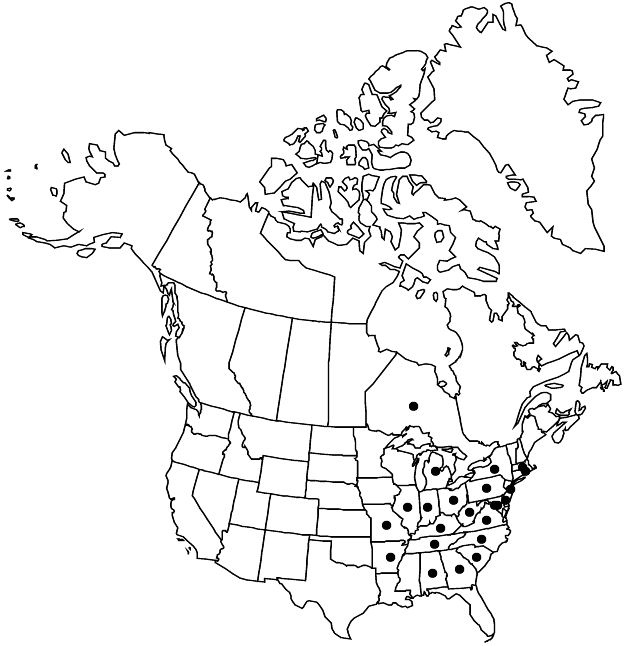Difference between revisions of "Gillenia trifoliata"
Suppl. Meth., 286. 1802.
imported>Volume Importer |
imported>Volume Importer |
||
| Line 61: | Line 61: | ||
|publication year=1802 | |publication year=1802 | ||
|special status=Endemic | |special status=Endemic | ||
| − | |source xml=https:// | + | |source xml=https://bitbucket.org/aafc-mbb/fna-data-curation/src/2e0870ddd59836b60bcf96646a41e87ea5a5943a/coarse_grained_fna_xml/V9/V9_721.xml |
|subfamily=Rosaceae subfam. Amygdaloideae | |subfamily=Rosaceae subfam. Amygdaloideae | ||
|tribe=Rosaceae tribe Gillenieae | |tribe=Rosaceae tribe Gillenieae | ||
Latest revision as of 22:58, 5 November 2020
Leaves: stipules deciduous, linear, 3–8 × 1–3 mm (often with basal lobes), margins serrate to doubly serrate or shallowly laciniate; leaflet blade lanceolate, abaxial surface eglandular or sparsely sessile- or stipitate-glandular, otherwise glabrous or hairy, adaxial glabrous or sparsely to moderately hirsute. Hypanthia 5.5–8 mm. Petals 12–22 mm. Follicles short-beaked, smooth or slightly rugulose, loosely strigose to villous-strigose. 2n = 18.
Phenology: Flowering Apr–Jul.
Habitat: Rich woods, open woods, commonly on rocky slopes, road banks and cuts
Elevation: 100–1200 m
Distribution

Ont., Ala., Ark., Del., D.C., Ga., Ill., Ind., Ky., Md., Mass., Mich., Mo., N.J., N.Y., N.C., Ohio, Pa., R.I., S.C., Tenn., Va., W.Va.
Discussion
Occurrences in Massachusetts and Rhode Island are escapes from cultivation. M. Oldham (pers. comm.) noted that Gillenia trifoliata has not been seen in Ontario for several decades and may be extirpated there.
Selected References
None.